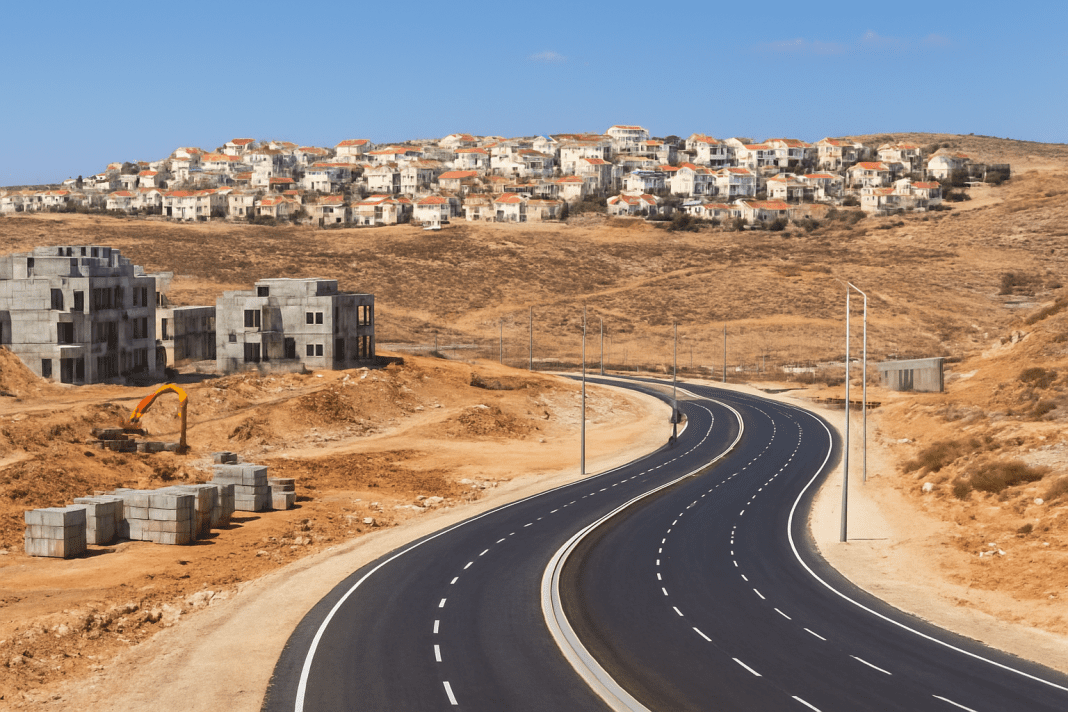China has expressed strong objection to Israel’s commencement of a large-scale construction plan in the E1 area that will connect the Jewish settlement of Ma’ale Adumim to Jerusalem. The project, valued at $1 billion, was approved by Israel’s Defense Ministry Civil Administration and is set to include more than 3,000 housing units along with significant road and infrastructure development.
China Voices Strong Opposition to Israel’s E1 Project
The E1 project is located in the West Bank, part of the Occupied Palestinian Territory, which also includes the Gaza Strip. This area has long been a hotspot of conflict, and nearly 2 million people have been displaced from Gaza due to previous clashes and military operations. The development of the E1 area is expected to further divide the West Bank from East Jerusalem, raising concerns among international observers and complicating efforts to maintain stability in the region.
China’s Foreign Ministry highlighted that Israel’s settlement expansion in the E1 area violates international law, a stance supported by the United Nations Security Council’s interpretations. A ministry spokesperson warned that actions such as this could escalate tensions and potentially undo fragile agreements, including the recent truce in Gaza. China emphasized that the humanitarian situation in Gaza remains critical and that any escalation could worsen the ongoing crisis.
The spokesperson further stated that Israel should avoid provocative measures that inflame the situation in the region. China called for restraint, stressing that peace and stability require careful management of all settlement activities, including those in the E1 area.
Israel Asserts Control Over E1 Expansion
Despite criticism from China and other international actors, Israel continues to defend the E1 project. Government officials reiterated that the land falls under Israeli control and described the construction as vital for national security and the development of infrastructure. The E1 project is part of a wider strategy to strengthen Israel’s presence in key areas and expand housing options for settlers.
The E1 plan has drawn widespread concern internationally because it could block the creation of a contiguous Palestinian state. By constructing housing units and roads in this area, Israel effectively separates East Jerusalem from the West Bank. Analysts point out that this separation complicates peace negotiations and could exacerbate tensions between Israeli authorities and Palestinian communities in surrounding regions.
Israel’s Controversial Move: Captured Russian Weapons from Lebanon May Go to Ukraine
The project’s scale, covering thousands of new housing units and major roadworks, signals Israel’s long-term commitment to expanding the settlement network. Observers note that such developments in the E1 area may influence both local dynamics and broader regional stability, highlighting the sensitivity of construction projects in occupied territories.
China Highlights Regional Stability and Two-State Principles
China has consistently called for respect for Palestinian self-governance and reiterated its support for a two-state solution as a path to resolving the conflict. The Foreign Ministry emphasized that projects like the E1 expansion undermine prospects for peace and compromise regional stability. China’s position stresses that settlement growth in the E1 area directly threatens the principle of Palestinians governing their land.
Officials also urged Israel to avoid further “inflammatory and escalatory actions” that could worsen the humanitarian crisis in Gaza. China highlighted the need for a comprehensive and permanent ceasefire to reduce suffering and maintain calm in the region. The situation remains delicate following recent hostilities, and any actions in the E1 area could have serious consequences.
Defense officials clarify F-35 parts shipments to Israel amid questions over export permits
In addition to its focus on the Israeli-Palestinian conflict, China also linked its stance to other international matters, including Taiwan. Beijing warned that military buildup or foreign support in sensitive areas, such as Taiwan, could provoke conflict. China reiterated its opposition to Taiwan independence and foreign military engagement in the region, emphasizing a consistent policy approach centered on territorial integrity, stability, and conflict prevention.
China’s comments underline the importance of maintaining restraint and adhering to international norms, both in the E1 project and other sensitive geopolitical areas. By condemning the E1 settlement expansion, China continues to highlight the potential risks of unilateral actions in disputed territories and stresses the need for dialogue and careful management of conflicts.

